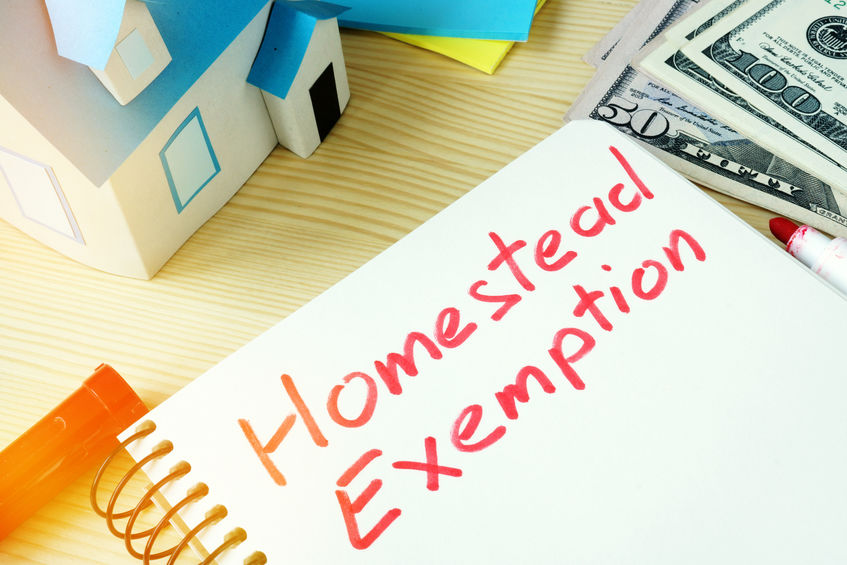What is Homestead?
Florida provides homeowners who make their Florida home their principal place of residence with a tax exemption. This exemption is called the Homestead Exemption and has different benefits. The exemption allows homeowners to exempt $25,000 (or $50,000 for married couples) from the taxable value of their home. Also, claiming Homestead provides exemptions for creditor claims, exemption from certain real estate taxes, and protections for your children and spouse. The only requirements are owning your home on January 1, residing in the home as your principal residence, and applying in person for the exemption at the county property appraiser’s office.
When Should you File for Homestead Exemption?
You should apply for the residential homestead exemption between January 1 and April 30. If your application is postmarked by April 30, this will allow the district time to process it before your tax statement comes out in the fall.
Do I Have to Apply for a Homestead Exemption Every Year?
Fortunately, no. Once you apply and qualify, so long as you continue to use the property as your principle residence you do not need to reapply. Once a homestead is established, it is presumed to continue until terminated.
Can You Lose Your Homestead Exemption?
Once you apply and qualify, there are a few things that will terminate your homestead. If you claim a similar residency-based property exemption, reduction, benefit, or credit in another state, then you will lose your Florida homestead. If you rent your property on January 1, or rent your property for more than 30 days per calendar year in two consecutive years, then you will lose your Florida homestead. If you maintain or obtain a driver license or state issued ID in another state, then you will lose your Florida homestead. If you register to vote in another state, then you will lose your Florida homestead.
Creditors will try to claim that you have terminated your homestead. The party asserting termination has the burden of showing termination through either death, abandonment, or voluntary alienation. Upon the owner’s death, there is no longer a homestead. However, there are still homestead interests, that protect the home from being sold to pay ordinary debts.
A temporary absence does not constitute abandonment of a homestead, if there is a constant intention to return to and occupy the homestead as a home. The duration of the absence is not conclusive, abandonment is a matter of intention and will be determined based on all the facts and surrounding circumstances. Any action taken by the homeowner that is incompatible with the intention to permanently reside may cause the homeowner to lose the benefits. To find abandonment, it must be voluntary and without intention to return.
What is Florida Homestead Protection?
Florida homestead protection extends to the family of the homeowner. Providing them with superior rights over any creditors at the death of the owner. If the owner passes away leaving behind a spouse and minor child, the law will not allow the property to be devised to anyone other than the spouse or minor child.
Considering all of the above, what would happen if a homeowner is incarcerated for many years? If the homeowner applied and qualified for the homestead exemption, it should continue until terminated. Even if he is incarcerated in another state, there is no evidence of termination. There is no evidence of any intention to abandon. An incarcerated person, even in another state, will not get an exemption in the other state, will not acquire a license in the other state, will not rent the property out, and will not register to vote in the other state. As mentioned, the length of his incarceration will not be conclusive, but should be considered with the other factors. However, there are no other factors proving abandonment. First, abandonment must be voluntary. Courts have found that criminal incarceration is not voluntary abandonment of homestead property, as long as the debtor intends to reoccupy the house at the end of the prison sentence. If he has family living on the property during his incarceration, then there is a good argument that he intends to return.
One of the major policies behind the homestead exemption is protecting the family and ensuring that owner’s dependents are not forced out of the family home. In this scenario, if the spouse or children are in the home, the state will not consider the homestead terminated, for the benefit of the spouse and children. Creditors would not be able to force the sale of, or place an enforceable lien upon, the homestead while the husband is in prison.


